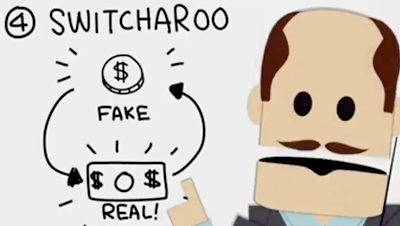Article first published as SOPA Gives Rise to the Voice of the Internet Community on Technorati.
January 18th, 2012 found an Internet community that may have
finally shook off its timid boy in the basement image. This was the day when browsing to Google.com
found the logo covered with black duct tape and Wikipedia showing an anti-SOPA
legislation page instead of that article about Carrie Nation that you were
looking for.
Countless Internet websites and content providers took up
arms, so to speak, and expressed unity with the movement. Google offered the opportunity to sign a
petition against SOPA/PIPA and had
4.5 million signatures in 24 hours.
Twit.tv broadcasted all of their programming in black and
white, Wired.com censored their own content with black bars reminiscent of
declassified documents like those seen on investigative news shows.
Information from proponents of the legislation cite the need
to stop piracy and preserve intellectual property rights. Those against claim dangerous ambiguity in
the wording and technical issues that would essentially put the U.S. government
in the role of a proxy to your Internet browsing and break a number of current
and future security measures in the process.
Arguments against also highlight the ineffectiveness the measures would
have on stopping piracy as well as degradation of the user experience.
Former Senator Chris Dodd and current MPAA CEO has called the actions of participating web
content providers a "gimmick"
with further commentary reminiscent of the former President Bush's "You're
either with us or you're with the terrorists" rhetoric.
Sweeping measures to combat illicit activity aren't new to U.S.
politics. With ax-handle diplomacy
Carrie nation set the stage for the 18th Amendment to the U.S.
constitution. It took the 21st amendment
to attempt to reverse the resulting rise in organized crime and alcohol related
deaths related to dubious sources of bootleg alcohol.
It's an issue not well suited to the 30 second sound bite
regardless of how traditional media chooses to frame it. The devil is in the details and it is the
details that have opponents to SOPA/PIPA up in arms.
More information is available from a number of sources too
numerous to list here but a simple google search, a viewing of any of Twit.tv's
programs from January 18th or a visit to Tim O'reilly's google plus page are
good places to start.



